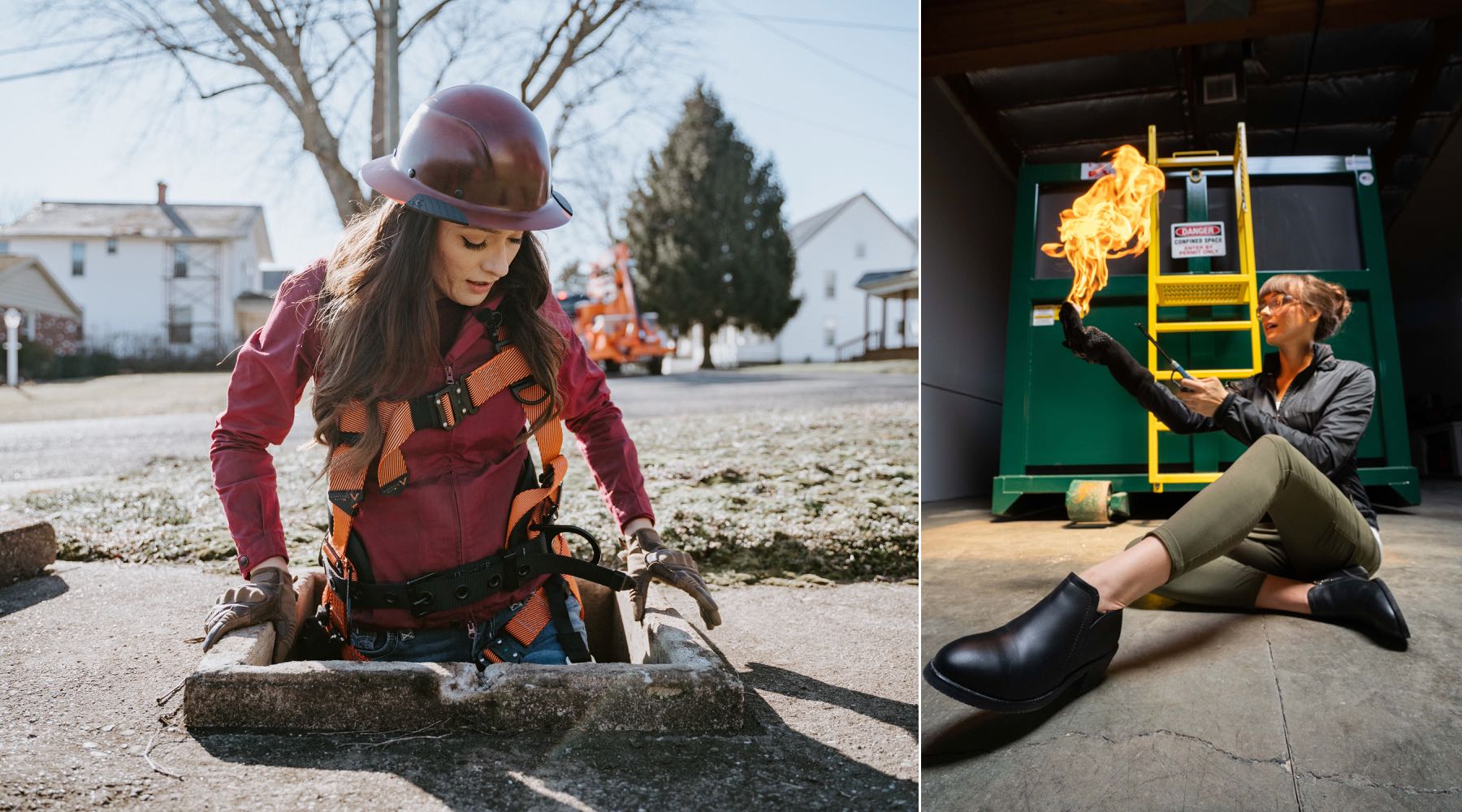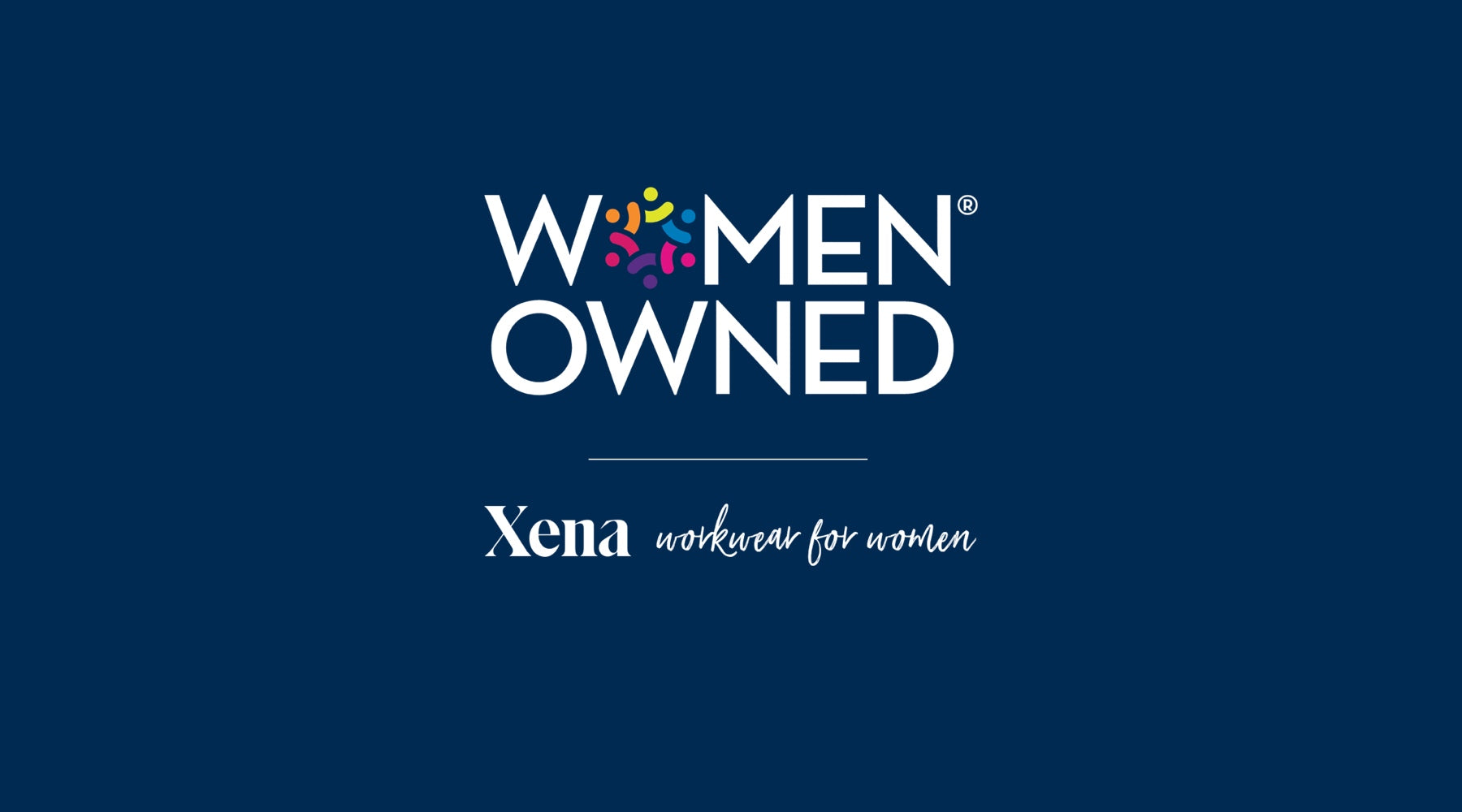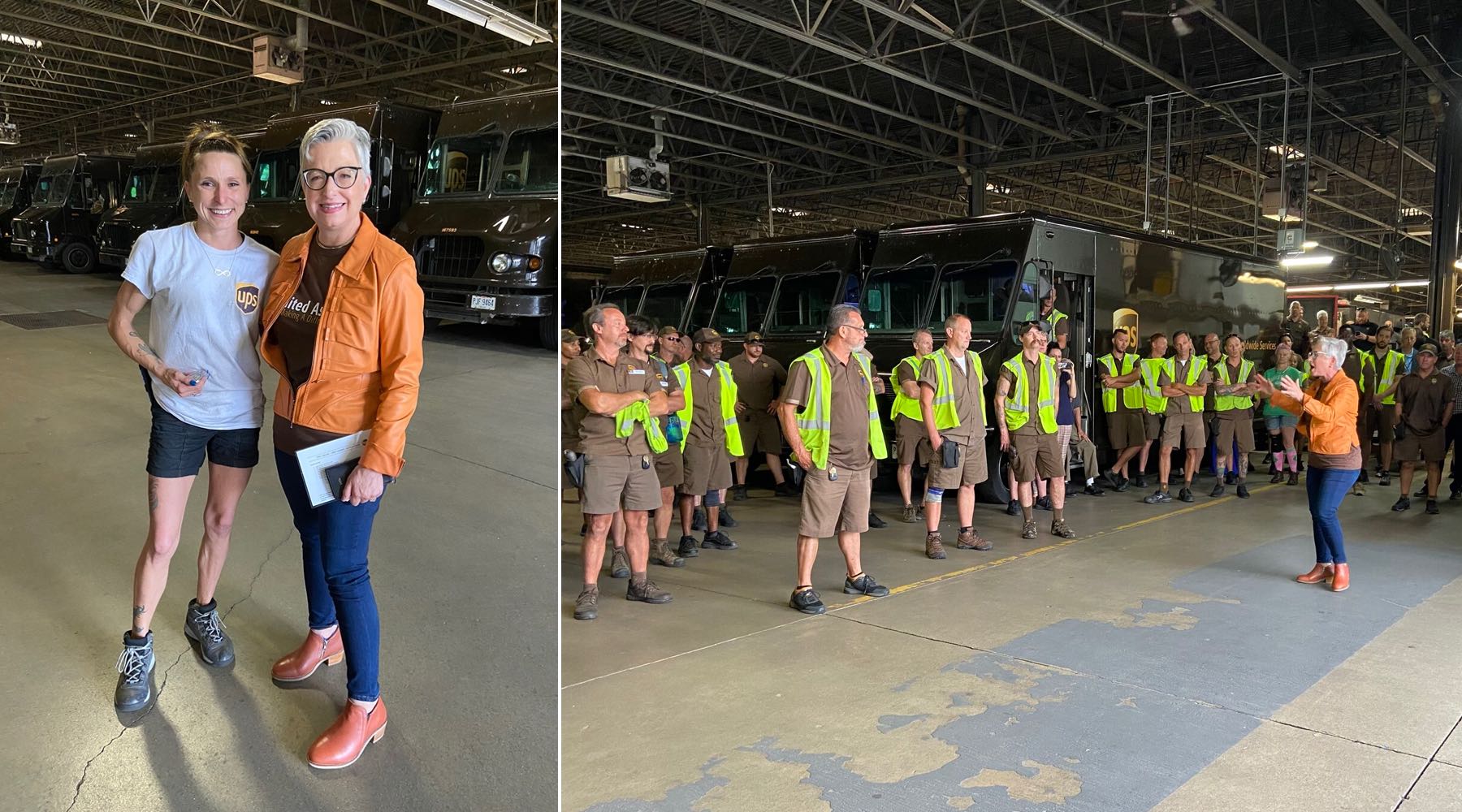
Safety Reimagined
Rachel Walla is a safety consultant and the mastermind behind Ally Safety, a YouTube channel that strives to make safety training more entertaining and effective. She is always asking “is there a better way we could be talking about this?" Rachel is on a mission to change how we view and talk about safety inside and outside the workplace.
Can you lead us through the journey of how you got into safety?
I grew up in a family-owned logging and construction business managed by my dad. He taught his three daughters and his son, how to run all the equipment. Overall, he expected us to be self-sufficient. That’s how I learned how to comfortably operate heavy machinery.
Fast forward to when I was in college for engineering, when the economy crashed. I decided I would take a one-year internship planting trees. You would think planting trees… “Oh, that sounds lovely. This is super fun!” But we had to plant 600 a day in super rocky ground. Even then, I still wasn’t making enough to make ends meet.
One day, the company running the internship asked our group, "Does anybody know how to run a forklift? You can come on the weekends and get some overtime." It was a John Deere tractor with forks on the front and I'm like, "I know this, I can run it!" So I started running their forklift.
Not long after their safety professional left the company and they asked me, "Hey, can you do safety?" At that point I had taken several safety classes in college and knew enough from my internship, so I was like, "Yeah, I think I could do this." So just like that I became their safety manager.
These moves helped me realize that there was another way. After that internship, I changed my major from engineering to pursue a Bachelor of Science in Safety, Health, and Industrial Hygiene. I’ve been in safety ever since!

Sounds like you didn’t seek out the safety world, but it still found you?
You know, that seems to be everybody’s path. Nobody gets into safety on purpose. I certainly didn't pursue a career in safety before I got into it. Yet, so many roads in my life could have led to safety. Perhaps my path was meant to be.
Growing up around my dad’s business, I’ve seen a lot of crazy things happen. A friend of mine in high school died because the box of his dump truck crushed him while he was working on the hydraulics. I was on a job site when somebody had a massive heart attack when I was 12. I ran two miles through waist-deep snow to call the ambulance, but he unfortunately ended up dying. I've had two siblings die in accidents.
When people who worked with my dad got hurt, they would come stay with us while recovering. Loggers tend to be independent contractors in Montana and few have health insurance.
Then in college, I really wanted to go to film school, but just didn’t see any way to make money in it and couldn’t justify it. So I ended-up choosing the more financially secure field of engineering that led me to my career in safety. But had I gone into film, I could see myself eventually doing safety videos. Maybe it is meant to be.
Absolutely, your content is so necessary! What drove you to start uploading it to YouTube?
I always joke that this is my passion project. I spent so much effort and money making safety videos because it’s what I wanted to do. There was a big need and nobody was doing it right.
Usually, safety training is a collection of technical information that’s communicated very formally. The delivery is so bad, people just aren’t listening to the message, and it’s giving safety a bad reputation. Take my fiancé, for example. He has a dangerous job, but usually doesn't consider that accidents can be avoided.
I was like, "safety needs new PR”. It needs to speak to the workers who need it, not just to the office staff who is making the videos. But how can safety be cool, have an edge, and be interesting? I didn't want to do "death by PowerPoint" because that just doesn't get through. Most of the people I know are visual learners so I decided to try to connect with them in a different way.

Fascinating. Can you be specific as to how the message can be delivered differently?
I've been thinking about how we can expand the message to better connect with the lifestyle of our workers. Sometimes in safety, it feels like companies are trying to baby-proof the workplace. People don't like that sense of being "smothered by safety". This is in part because managers and engineers are often taught to do things by the book. Their lives are structured and planned.
I find that people who work in the trades or the field have less structure. They can’t always do things by the manual. They need to be creative in coming up with solutions and repairs. Procedures don’t always work in real life and in the field. People in the trades also tend to have more hazardous hobbies like four-wheeling and snowmobiling on the weekends. But what if instead of a formal workplace lecture, we made safety training that are useful both on and off the job? What if we better illustrated the why and the how?
When workers can envision themselves in relatable scenarios they become more vested in the safety training and can start to assess risk differently. As long as we manage the overall risk, then what’s wrong with messaging differently?
That’s a fresh approach! Do you think it can have an immediate workplace impact?
I actually don't see attitudes towards safety changing much with the older generations, but I do with the younger ones. They have a new perspective that is driving a shift in what is expected from a model employer. Young employees want a safe workplace that also enhances their well-being. That's a big ask that will require companies and their safety departments to evolve.
That's interesting. Do you have theories as to why younger generations are driving change?
I think it's the values that they were raised with. Older generations were more focused on building a foundation by establishing their family unit and a long-term career. Younger generations on the other hand want to tackle larger issues. For them, being able to contribute to a greater purpose that makes our world a better place is central to happiness.
Community is such a buzzword now. For example, we're a community of people who like to hike in the Northwest rather than just a group of people who enjoy hiking. Younger generations are promoting community in everything they do and that mindset pushes you care about others. They bring that the mindset to the workplace. I think it will be good overall. It’s cool to see.
I do this series called Workplace Safety Around the World where I just interviewed this young woman from Barbados. She was talking about her career in a purpose-driven way stating that she wants to make the maximum impact. She was like, "Yeah, you know us millennials. This is what we do." That rang so true. I never heard it put that way before.
Are companies embracing this generational shift toward general wellness?
Yes, I'm already seeing a significant corporate shift toward this. Workplaces used to only care about preventing physical injuries. Today, they are starting to promote the overall wellness and mental health of their workers. Before, maybe you'd have an annual safety fair with a few PPE vendors and classes. Now, there are large wellness fairs. They'll have acupuncturists, they'll have therapists, they'll have vitamins, they'll have gym memberships, and things like that.

Not everything is perfect. There is still a noticeable carelessness toward certain workplace exposures. I talked about this in my Hazcom video. As consumers, we're getting so much more knowledgeable about what’s in the foods we eat. We're all about organic, sulfate-free, paraben-free. But when it comes to workplace chemical exposure, many workers just aren’t that concerned about it.
We're all too busy to educate ourselves on everything, I get that. However, this specific issue will likely need to be addressed by concerned employees. I think there is more activism in the younger generations than in the previous ones. We're not there yet, but we’ll get there.
Could you share a bit more about your ‘Workplace Safety Around the World’ concept?
After my little sister died in a car accident, I quit my job and backpacked around the world for a while ... during this time I became really interested in other cultures. I was fascinated to see how they all took different approaches to solving similar problems.
During COVID, I decided to see what workplace safety was like around the world. I started a series called Workplace Safety Around the World where I would interview people from different countries. It's been so interesting because you get to hear what's similar and what's different. We've already interviewed people from Brazil, Oman, Barbados, and have Latin American and European guests coming up.
I think it's so cool to connect with safety professionals globally. We don’t often realize how interconnected our economies are, how much we have in common with the rest of the world, and how much we can learn from other professionals out there.
Maybe it's just me being a geek, but I get a kick out of it. When somebody is excited and talking to me about this topic, I start getting excited too, it’s contagious. For now, it’s just a passion project that I love doing. It hasn't taken off yet, but is starting to gain some traction!

Can you share an insight you learned that we may be able to apply in the US?
Recently, I interviewed a man from Oman who talked about how risk and safety are topics that we should be teaching at a much younger age, well before people get into the workforce. I think that’s a great idea.
Somebody once told me "risk equals reward" and I'm like, "No, I'm in safety. We do not think that way". You can take huge risks financially, emotionally, and in most every realm of your life, and you know what … sometimes there is no reward. Calculated risk-taking can sometimes be worth-while, but general risk doesn’t equal reward.
Those who engage in dangerous sports like base jumping or free climbing think about safety all the time. It's integral to their survival. The everyday person doesn’t think this way, because their life isn’t in danger. However, we all experience elevated risk in certain situations. If we can be better at taking calculated risks, we can also create better outcomes for ourselves.
Was being the safety guru challenging to navigate as a young woman?
There are good days and bad days. I do think being a young woman in a male dominated field gives me an edge. It’s unexpected and memorable. However, I also get to deal with difficult people who think I have no right to be giving advice. This comes through in some of the YouTube comments.
I was once told I wasn't credible because I wore a leather jacket in a video. I was fuming inside, "Are you kidding me? Five years of college, ten years of safety experience, all of that meaningless because of my jacket choice? Who would say that to a guy? Nobody.” I just try to be assertive and draw the line in the sand when necessary. That definitely helps.

What advice would you give young girls who wants to do what you do?
Things have changed. A university degree is not the only way to go about things, although it can be a good place to start. It certainly helps to have credentials, but building up your skillset is just as important. The trades are also an excellent option.
Start learning well before college. Try different classes, activities, and don't be afraid or feel intimidated by complex processes. Just learning how to change the oil in your car is an excellent place to start. Stack-up these little skills one at a time and then work your way up. It gives you more confidence when you get into the industrial world.
Take what you already know and like, generationally this can be a lot of the digital know hows, then add-on layers of traditional mechanical and engineering skills. Try to envision ways of packaging your skills to provide even more value that can be of interest to people? Perhaps your knowledge of video and social media distribution can improve a company’s recruitment efforts.
There are more opportunities for women than there were ever before. Find a community of supportive women who have your back and go for it!
So what are you up to next?
Although I really enjoy talking about workplace safety, I can also see myself expanding into broader areas that impact general health. I think it would be really valuable to find cool, interactive ways to take some of the stigmas out of safety to help people improve their daily lives.
That's where I want to go. Some projects may eventually start leaning that way, but for right now, my focus is workplace safety.
-----


